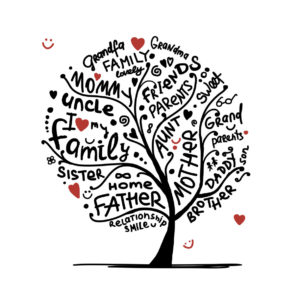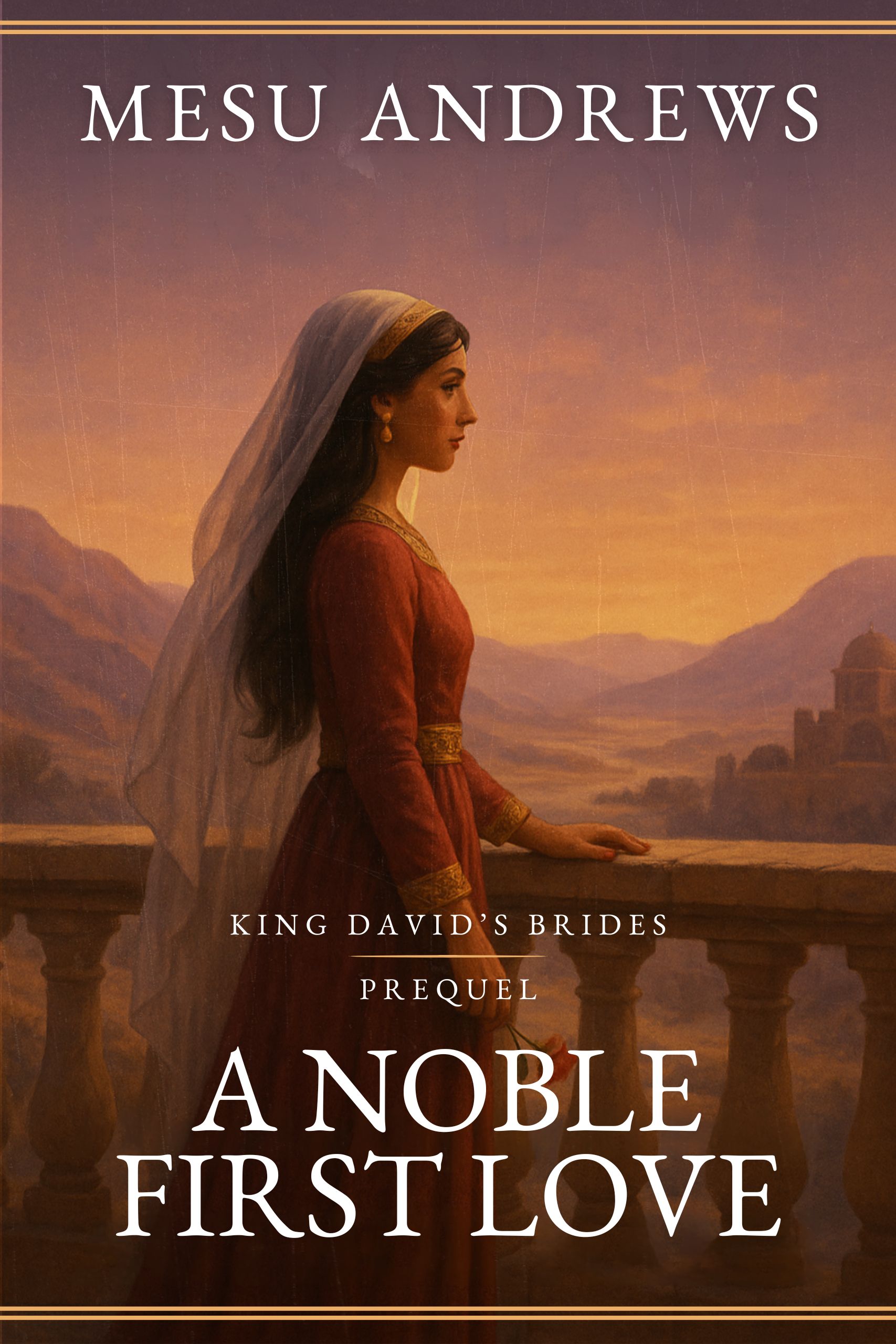(CLICK HERE to find out more about Daughters of Terah) Abraham is sort of a rock star. He’s at the heart of three world religions: Judaism, Islam, and Christianity. He had a gorgeous wife–Sarai/Sarah–who was taken by two kings into their harems–once when she was sixty-five and again at the age of ninety (Gen. 12, 20). But we learn from the Bible that it was Abraham’s faith that made him special.
“Abram believed the Lord, and he credited it to him as righteousness.” Genesis 15:6
Weren’t there others who believed God? And why am I talking about Abraham when I should be telling you more about my May 2022 release, Potiphar’s Wife?
Because without Abraham’s clan, Potiphar’s wife wouldn’t have been included in the Bible.
Without Abraham, there would have been no Isaac.
Without Isaac, there would have been no Jacob.
Without Jacob, there would have been no Joseph.
And without Joseph, no one would care about the mysterious woman the Bible only calls, Potiphar’s wife.
Roots Nourish the Tree
ROOTS. Without them, a plant dies. And after talking to many friends who discovered they were adopted–and dug deep to find their biological roots–this metaphoric part of the human species also seems important.
Let’s take a look at Abram’s/Abraham’s roots. The Book of 1 Chronicles opens with an historical record of the human race from Adam to Abraham:
“Adam, Seth, Enosh, Kenan, Mahalalel, Jared, Enoch, Methuselah, Lamech, Noah. The sons of Noah: Shem, Ham and Japheth . . . The sons of Shem: Elam, Ashur, Arphaxad, Lud and Aram . . . Shem, Arphaxad, Shelah, Eber, Peleg, Reu, Serug, Nahor, Terah and Abram (that is, Abraham).” 1 Chronicles 1:1–4, 17, 24-27 (emphasis added)
The God-Honoring Branch
If you’ve read Genesis 1-5, you know that Adam had two sons before Seth: Cain and Abel. Cain killed Abel and was exiled. God gave Adam and Eve a third son–Seth–who fathered a lineage that remained with his parents.
However, after reading Genesis 6-11, we realize that the whole world became evil and needed a reboot. Thus, the great Flood, and Noah’s three sons–Shem, Ham, and Japheth–repopulated the whole world.
However, as the above passage shows, it was Shem–Noah’s firstborn–whose roots nourished a godly branch of humans that ultimately produced “Father Abraham,” who (as the children’s song says) had many sons.
Soil Matters Too
Roots are vital, but the land in which they’re planted makes a difference. the Bible tells us Abram/Abraham and his family came from a land called Ur of the Chaldeans, which was located in the cradle of civilization–Ancient Mesopotamia–where the oldest historical records find their roots.
“Terah took his son Abram, his grandson Lot son of Haran, and his daughter-in-law Sarai, the wife of his son Abram, and together they set out from Ur of the Chaldeans to go to Canaan. But when they came to Harran, they settled there.” Genesis 11:31
3 Important Things About Abraham’s Hometown
- Ur of the Chaldeans is thought to have been very near the Garden of Eden’s location as it’s described in the Bible (Genesis 2:10-14).
- Ur of the Chaldeans was also thought to be the location of the Tower of Babel’s ziggurat where the languages of the world were confused (Genesis 11:1-9).
- The above Scripture implies that it was Abraham’s father, Terah, who originally left Ur to go to Canaan and took Abram, Sarai, and Lot with him–but Terah settled in Haran. We don’t hear anything of Abram’s personal calling to Canaan until after Terah’s death (Genesis 12:1).

(pp. 144,151. Herman V. Hilprecht. Explorations in Bible Lands During the 19th Century. Philadelphia. A. J. Holman & Co. 1903)
Not the Only Show in Town
Sometimes, it’s hard to keep in mind that our Bible heroes didn’t live in a vacuum. Remember Noah’s other two sons, Ham and Japheth? The Lord scattered their descendants and confused their languages at the Tower of Babel. All those nations created other gods to worship, choosing to deny the God of Adam, Seth, Noah, Terah, and Abram/Abraham. Even some in the “godly” lineage chose to worship other gods (as we see later in Genesis).
It makes sense then that Abraham would have been familiar with the extensive pantheon of gods in ancient Mesopotamian. Their list was as extensive as the gods Joseph would have encountered when he arrived in Egypt centuries later.
How Joseph Knew of Other Gods
Let’s trace the journey of the gods from Abraham’s ancient Mesopotamian understanding to Joseph’s introduction to those Egyptian gods . . .
Remember the story of Jacob’s favorite wife, Rachel? She was the daughter of Laban, descended from Abraham’s brother, Nahor, who moved to Haran–the place their father, Terah, died.
Jacob fled to Haran when he stole Esau’s birthright, remained there twenty years, acquired four wives who gave him eleven sons, and then left Haran to return to Canaan. When Jacob and his household left Haran, Rachel stole her father Laban’s household gods (Genesis 31:19, 31-35). We can assume that Nahor brought the ancient Mesopotamian gods with him from Ur, passed them down to his son, Laban, whose daughter (Rachel) stole them. Why does this matter?
Because Rachel is Joseph’s mom. Hebrew mothers exclusively taught their children for the first five years of life. How did he end up with such an unshakable faith in Elohim alone? Knowing his family history gives me even more respect for Joseph!
Joseph’s Past
The Bible is very clear that Joseph was a righteous guy, but we now know he wasn’t naive or ignorant of other gods. Genesis 34 tells us he’d witnessed first-hand some very difficult days in his father’s household. When Joseph’s sister, Dinah, was raped, their brothers rained vengeance on a whole city by murdering every man in Shechem. Jacob’s response to those events tells us he believed–at least in part–were due to the pagan worship among them.
“So Jacob said to his household and to all who were with him, ‘Get rid of the foreign gods you have with you, and purify yourselves and change your clothes. Then come, let us go up to Bethel, where I will build an altar to God, who answered me in the day of my distress and who has been with me wherever I have gone.'” Genesis 35:2–3
Prep for the Future
If you ever imagined Joseph landed in Egypt’s polytheistic culture as an innocent lamb, I hope the biblical Truth and historical findings have shown you a different perspective. Joseph’s culture counted boys as men at the age of twelve or thirteen. Joseph was seventeen when he was sold as a slave (Genesis 37:2), and Jacob may have been training him for a few years to become overseer of the whole camp. Why would I think Jacob might give his eleventh son such a big role? Let’s look at Scripture…
“Now [Joseph’s] brothers had gone to graze their father’s flocks near Shechem, and Israel said to Joseph, ‘As you know, your brothers are grazing the flocks near Shechem. Come, I am going to send you to them . . . Go and see if all is well with your brothers and with the flocks, and bring word back to me.’ Then he sent him off from the Valley of Hebron.” Genesis 37:12–14
Basis for my assumption:
- The journey from Hebron to Shechem (for one man on foot) would have been 2-3 days. Why would Jacob send Joseph–his favorite son, whom his brothers hate–on such a long journey to the area where Simeon and Levi murdered a whole city of men? Jacob feared the other nations in that area could become violent with Jacob’s household (Genesis 34:30). I think the answer lies in, “…bring word back to me.” Jacob made Joseph his representative–a manager–in authority over his brothers. Jacob fell into the same trap Sarah had two generations before–trying to help God fulfill His promise. Joseph had dreamed his brothers would someday bow to him (Genesis 37:1-10). Perhaps this was Jacob’s way of speeding the process.
- Overseeing the camp should have been a firstborn’s responsibility. Reuben (Jacob’s actual firstborn) was in the doghouse for sleeping with his father Jacob’s 4th wife, Bilhah. Joseph was the firstborn of Jacob’s favorite wife (Rachel).
We’ll never know Jacob’s true motivation for sending Joseph to check on his ten older brothers, but we do know that Joseph never had the chance to report anything to his father. Sold into slavery, Joseph was taken to Egypt and purchased by Pharaoh’s captain. He excelled at managing and overseeing Potiphar’s household and livestock, which points to some sort of training in Jacob’s household.
The Crimson Thread
A fuller picture develops when we study the Bible’s genealogies, consider surrounding cultures, and then focus on the faithful line of Abraham’s descendants. Every generation from Adam to Abraham to Joseph carried God’s heart through history toward His promise of a Savior. It’s that Crimson Thread that makes every story–even that of an otherwise unknown woman like Potiphar’s wife–important enough to explore.
Today’s Question:
- Was there anything in today’s post that was new information to you?
- What questions did this post raise for you about Joseph or Potiphar’s wife?






Comments 5
This was excellent! Thank you Mesu. Reading your writing alway motivates me to read more Bible.
Author
I’m so glad you enjoyed it Marta–and even more excited it’s inspired you to dig deeper into God’s Word! You go, girl! 😘
So interesting! I read about Joseph today because I have started reading the Bible through again this year. I can’t wait to read PW.
Author
Yay!!! Good for you, reading thru the Bible again this year! Just got word that PW was approved through final copy edits and should be sent to typesetting anytime now! Woot! One step closer to holding it in our hands! 🙌💞
Pingback: Live Free Without Changing Your Address - Mesu Andrews